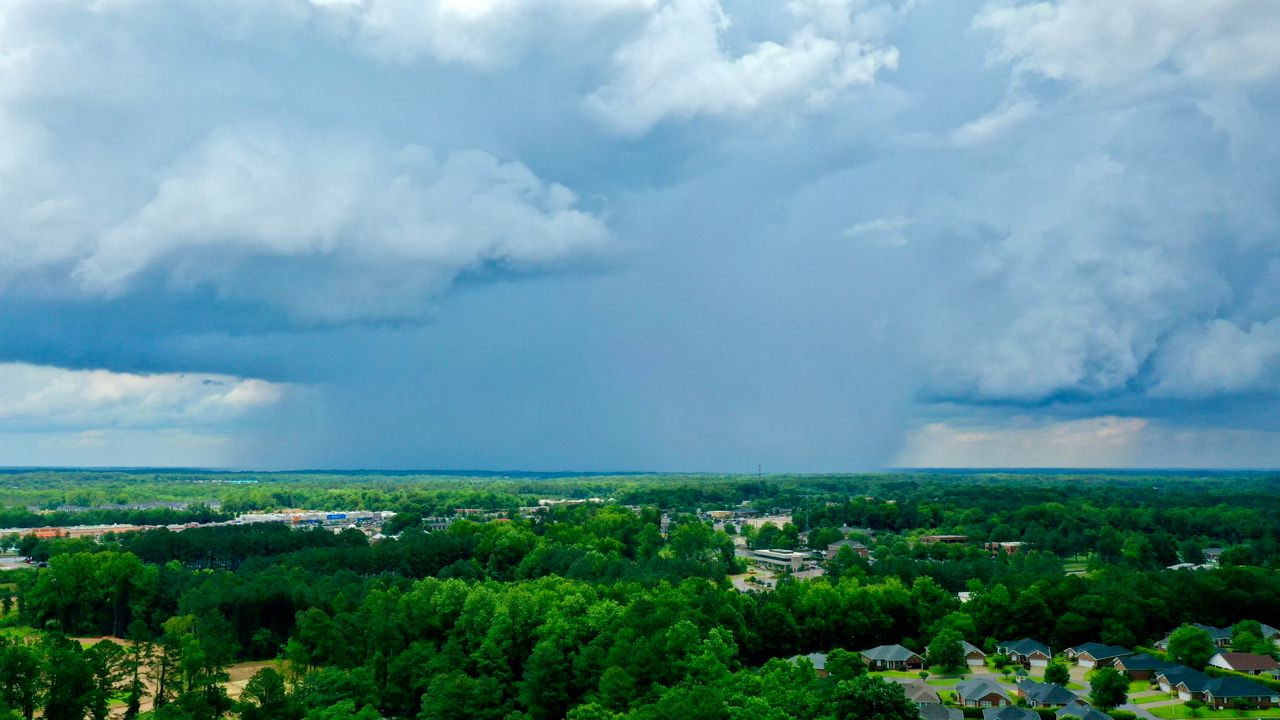WILSON COUNTY, N.C. — Tobacco farming is a family business for Brooks Barnes.
“My Dad started it in 1975,” Barnes said.
The second-generation tobacco farmer said the farm is roughly 400 acres after his father started with 12 acres of land.
Barnes said the yield is only as valuable as the money it makes at the market and depends year-to-year on several factors.
“This year we had a really tough growing season. Our expenses are up tremendously. We had a really dry June," Barnes said.“This year we had a really tough growing season. Our expenses are up tremendously. We had a really dry June," Barnes said.
Barnes is solely dependent on the weather moving forward.
When a tornado hit Lucama last week, Barnes said he lost power to steel barns used in curing the tobacco and lost value in the crops.
“I was panicking,” Barnes said. “The tobacco in these barns is compacted tightly in there and without airflow and heat, instead of drying it out with the air and heat, it starts absorbing heat and (if) it (only) takes heat, like anything else, it'll rot.”
Barnes opened one of the barns and pulled out a mostly dry leaf. He said the color of the leaf tells the story.
“If we open up, see, it's nice and clear and orange,” Barnes said.
Barnes said that’s a good sign, but the leaves in the next barn he opened didn’t fair as well.
“Not as valuable when I go sell it. It's it's all about a color line. This is the color, this (is) desirable,” he said as he pointed to an orange leaf.
He then picked up another leaf with severely faded coloring that looked more brown.
“This is less desirable. If it was black, I'd be in trouble,” Barnes said.
He believes they lost power to the barns for nearly 18 hours on Thursday. He estimated it would cost him close to $350 per barn.
Multiply that by 52 barns and the cost is around $18,000.
His workers dug ditches alongside the rows of tobacco to help alleviate the moisture buildup in the soil.
The reason is because what is happening under the ground is as important as what is happening above it.
The hard, pounding, continuous rain weighed heavy on the crops still in the field.
Without much rain in June, Barnes said the crop roots were forced to go deeper and deeper into the earth to soak up as much water as possible.
When the root system expands too much, the crop becomes heavy when the ground is so dense with moisture, any more rainfall could drown the crop and cause rot.





)


